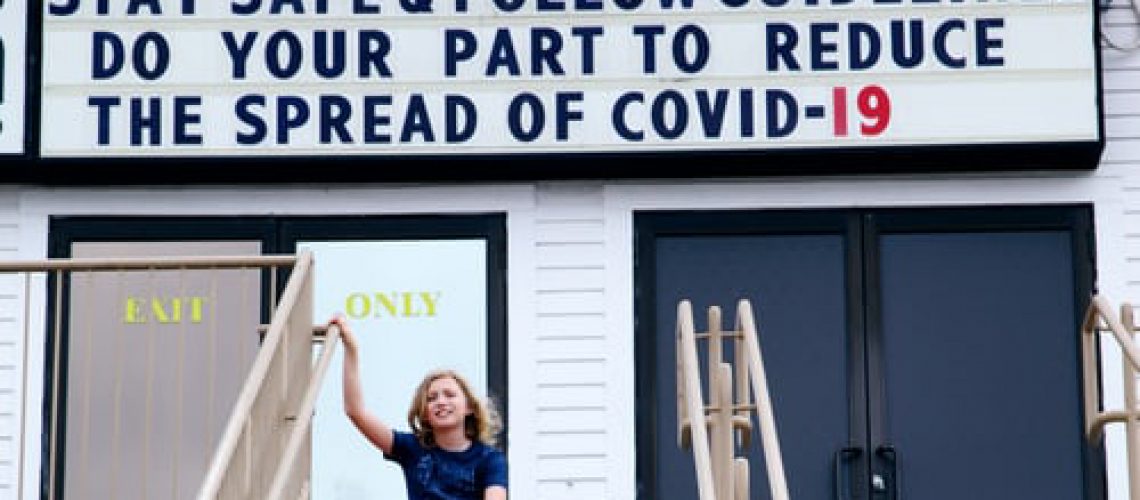
Pastor Mary Anderson
Pastor Anderson is the Pastor of Christ Lutheran Church
There’s a lot of talk right now about “getting back to normal” along with warnings that it may be a new normal. I’m sure historians and sociologists could tell us stories of how something traumatic happen to a community, a nation, or even a family and after that; they were never the same. As a Baby Boomer, I grew up laughing at the Depression Era folks, lovingly, of course. The trauma of suddenly experiencing unemployment, lack of food, and lack of everything created a generation that shunned buying things on credit and who hoarded things to the point of silliness – every twist tie, every Styrofoam cup from McDonald’s, every dollar they earned, it seemed. They weren’t going to be caught unawares and unprepared ever again. Life lessons.
In my lifetime, I suppose 9-11 was that traumatic event. It was horrible, property destroyed, so many lives lost immediately, and more lost eventually. But, forever at the airport, life would never be the same. No more meeting grandma and grandpa at the airport gate, no more liquids on board, no more shoes that were hard to take off. We now dress appropriately to be scanned and patted down. We all feel viewed by the TSA not as travelers but as possible criminals. We don’t like that feeling, but there seems to be no going back. Since we witnessed how airplanes could be weaponized, there is no going back to the normal of September 10, 2001. It’s not safe or smart. Sometimes we heal up from an injury. Sometimes we are permanently traumatized. When that happens, there is no getting back to “normal.” That way of life or living or thinking is simply over. Many things must be made new.
We’re having these conversations now in the middle of experiencing the global pandemic of COVID-19. We are assuming there will be changes as a result, short-term and long-term. We don’t know what they all are, we’re just pretty sure they will be there. Some of those changes will be considered unfortunate, perhaps a permanent loss of physical contact. Maybe we won’t hug anybody going forward unless they are family or close friends. Maybe everybody will forever have handmade masks to wash in their laundry basket. Perhaps restaurants will change some of their health protocols and will have security checks that remind us of airport TSA lines.
I assume there will also be good learnings that will cause us to leapfrog into advanced technologies and even social interactions. Tonight, some of my seminary friends are getting together on Zoom for a Bi-Coastal Cocktail Hour. Have we ever done this before? No! I’m looking forward to seeing a friend in San Diego that I haven’t visited in 18 years over a glass of wine tonight. I’m hoping Zoom will open up our world to meeting together in new and more frequent ways. In ways both strange and quirky, all sorts of possibilities are revealing themselves. So, we get it, that traumatic events happen and suddenly many things are made new. Those new things may be perceived as positive for a people or perceived as the end of some Camelot.
We as modern Christians, so far removed from the original Easter Day, and who confess the resurrection as the center of our hope; forget how traumatic it was for the disciples who stood at Ground Zero in the year 33 CE. It was traumatic enough to witness Jesus’ arrest and to see him hanging on a cross up on that hill. It was traumatic to realize you could be next if they found you as one of his followers. The combination of fear, guilt, and confusion was more than they could bear. Their world had changed. They had to lock themselves away to get their heads and hearts together. What would life be like post-Jesus? How could they strategize to survive this?
By the evening of what we call Easter Day, ten of the disciples (minus Judas, minus Thomas) were gathered in a fear-fest behind locked doors. They were trying to process a lot when the risen Christ appears among them, offers them peace, breathes the Holy Spirit on them, and commissions them to get out there and bring the good news of forgiveness to everyone. We often are so distracted by the part of the story that tells of Thomas’ absence followed by his experience with Jesus the next week; that we gloss over this powerful beginning.
The violent death of Jesus was traumatic for the band of disciples, but the appearance of the risen Christ was tremendously traumatic. What could be more life-changing than witnessing someone back from the dead? After the death of Jesus, they were strategizing about how to safely get back to normal – back to homes, jobs, former relationships. But the trauma of seeing the risen Christ and being commissioned by him as apostles caused “normal” to evaporate. Absolutely nothing could ever ever be the same.
It is into this continuing post-trauma time that we are baptized and still called to serve. The reality of Jesus’ death and resurrection changed the world for those who still call him, “My Lord, and my God.” It is to this joy-filled trauma that we continue to witness. Keep finding ways to get out there! Alleluia! Christ is risen, indeed.


